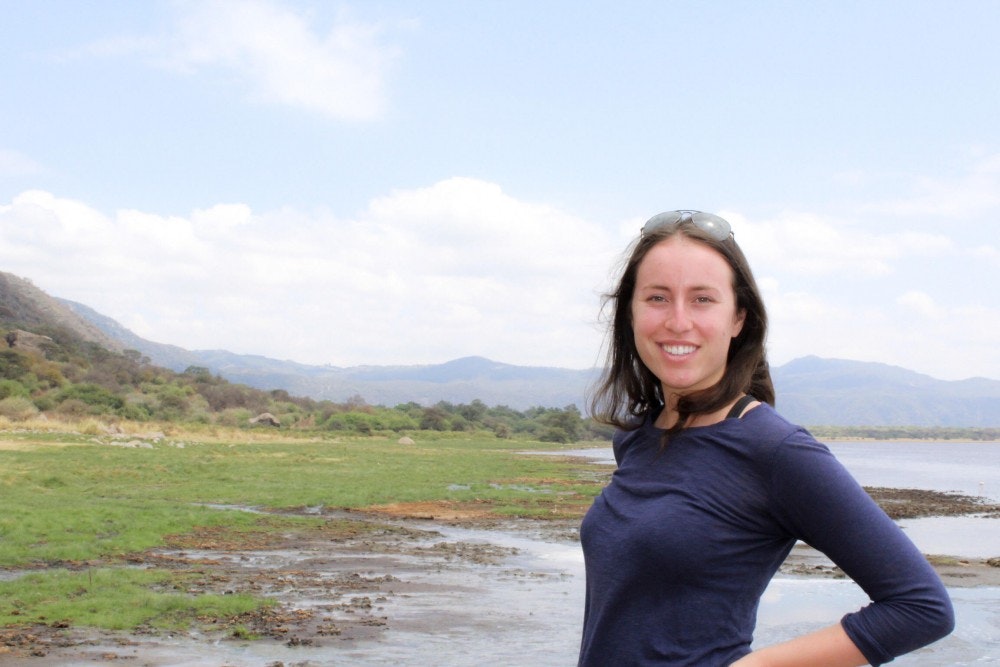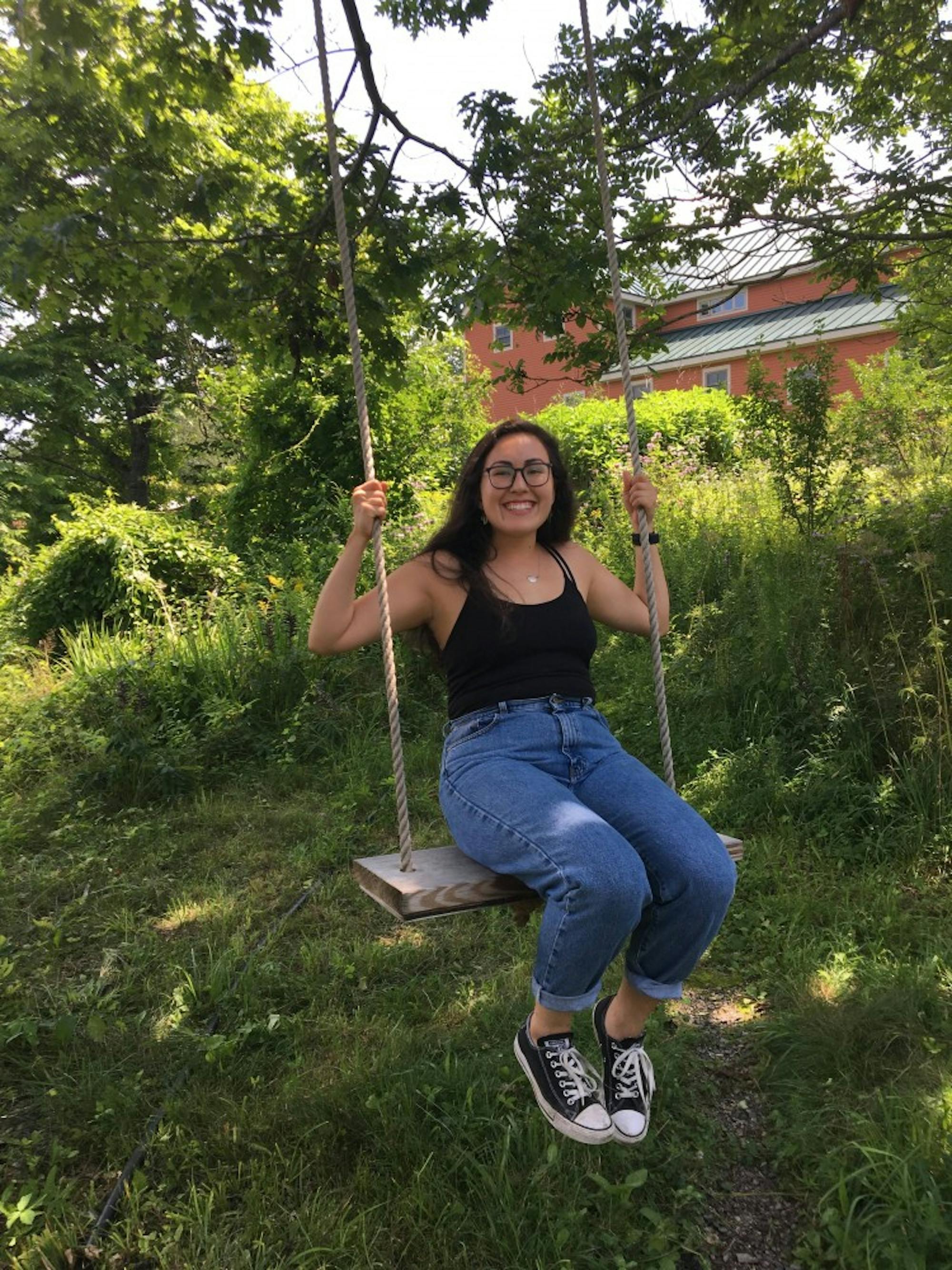Unlike many of her peers during junior summer, Rachel Kesler ’19 chose to forgo joining the money-making corporate exodus into the high rises of consulting, finance and tech firms. Instead, she chose to work in a place she loves — the Moosilauke Ravine Lodge. Kesler lauds taking the position of assistant manager of the Lodge as one of the best risks she’s taken in her Dartmouth career.
At Dartmouth, there are times when students are faced with the hard decision to either stick to the status quo and conform to the mold, or pursue an avant-garde path or an out-of-the-box solution. Sometimes these risks may pay off, and sometimes they don’t. Especially as graduation nears, how do seniors feel about the risks they’ve taken so far during their time at Dartmouth?
Kesler was determined to pursue a summer internship she was passionate about, and sidestepped the pressure to pursue a conventional job. She took the plunge and surfaced with close friends, a wealth of personal growth and a new sense of professional confidence. She said she made close friends and met new people that she claims she wouldn’t have met otherwise.
“The Lodge has given me so much,” Kesler said. “I couldn’t be happier with the decision I made.”
Spending her second summer at the Lodge, Kesler worried that she wouldn’t grow professionally. However, as a manager this time around, she broke out of her comfort zone. She took up the mantle of responsibility and handled the occasionally nerve-wracking daily operations of the Lodge that required her to be flexible and adaptive such as handling payroll, ordering food and sating the demands of guests.
“At 21 years old, having to learn how to fire someone was something I didn’t expect,” Kesler said. “This was a different sort of responsibility than an internship.”
Kesler said she formed many genuine connections with alumni staying at Lodge, which she felt was more authentic and natural than pure networking.
“I networked in a way that was true to me,” Kesler said.
According to Dartmouth’s Center of Professional Development, 56 percent of recent Dartmouth graduates go on to work in consulting, tech or finance. As she nears graduation, Kesler, a history and Native American studies major, said that working as a manager at the Lodge gave her confidence to pursue more unconventional career paths that are meaningful to her.
“Wherever you end up, you can make a home,” Kesler said. “Doing something you are passionate about is important.”
Kesler feels that Dartmouth can be a bubble where students often limit themselves to the things they are comfortable with. Like Kesler, Sydney Kamen ’19 believes that the Dartmouth bubble can sometimes be inertial and not enough to catalyze personal growth. She hasn’t been adverse to taking risks as long as they have satisfied her curiosity, even if it meant settling down in East Africa and prolonging her graduation.
She initially settled down in Rwanda as a political intern of the United States Department of State. However, her three months abroad quickly turned into 15 when she was awarded a Swahili immersion fellowship to study in Tanzania and then returned to the State Department to work as a public affairs intern there.
Kamen named her professors as the dominant influences for her decision. They encouraged her to apply to fellowships and expand her learning outside of Dartmouth. The experience would be worth living a continent away from home.
“Their confidence in me made me more comfortable,” Kamen said.
But for Kamen, a Washington, D.C. native, living in East Africa as a solo, traveling woman came with its risks. She felt that the local healthcare could be more receptive to her needs. Kamen has also encountered sexual harassment during her time there, citing catcalling and objectification by men. In a foreign land thousands of miles from Hanover, cultural barriers can make it hard to relate to locals — everything is foreign. And to be so far away from close friends and family in a place where she initially knew no one can be sometimes quite isolating.
“It felt impossible at times,” Kamen said.
While these hardships can wear her down occasionally, Kamen said that the benefits outweigh the costs. Working in East Africa has allowed her to learn Swahili and to gain a humbling, unique cultural lens, and it has solidified her desire to pursue a career there.
Kamen cited fear and discomfort as critical ingredients for her exponential personal growth. She joked that she can’t achieve her dreams by playing it safe. Working abroad has allowed her to better navigate foreign spaces and cultures and appreciate them. She said that she grew more during her time in Rwanda and rural Tanzania than in her three years at Dartmouth.
“I’m glad I didn’t run home — I wouldn’t feel as confident as I do [now],” Kamen said. “You can’t learn that in a classroom.”
Tanzania isn’t her last stop. Although she loves Dartmouth, she loves experiencing the world. Once she returns in the spring, Kamen plans to bother her professors for more fellowship recommendations to explore the world even further.
“I’ll graduate one of these days, I promise,” Kamen said.
Career choices and academic decisions aren’t the only areas where seniors have taken chances. Some end up making social choices that quite literally change their lives.
Whenever people ask about her living situation, Lauren Lucas ’19 enjoys seeing their visible shock when she tells them that her three roommates are male. When it was time to sort out housing, Lucas didn’t have an agenda, but she knew that she liked the communal benefits of a shared living space.
She was offered by a friend to live in the senior apartments with two males she had never met before. Although hesitant at first, after meeting her future roommates over an awkward Foco lunch, she chose to take the gamble and committed to living with them.
As a member of the women’s varsity soccer team, Lucas was used to spending most of her time with teammates and other female athletes. However, she wanted to break the habitual athletic lifestyle she described as “inertial.”
The majority of roommate set-ups in Greek houses, housing communities and off-campus housing seem to be single-sex. In most cases, gender doesn’t cross people’s minds when thinking about potential roommates. Perhaps the roommate combination would have made for a weird gender dynamic. Perhaps these random guys could have been roommates from hell. But Lucas said that she gained new best friends.
“It’s been the best living situation I’ve had at Dartmouth,” Lucas said.
Although being the only female hasn’t negatively affected her living dynamic, Lucas said that it prompted her to think about how spaces on campus are consistently gendered. Lucas hopes that co-ed living will become more normalized on campus.
“We have so many gendered spaces on campus that people respond in shock,” Lucas said in reference to her all-male roommates.
Although she’s living with two females after graduation, living with all guys during her senior year has made Lauren more comfortable living with a diverse set of roommates.
“Gender doesn’t really matter to me anymore,” Lucas said.

Courtesy of Sydney Kamen




